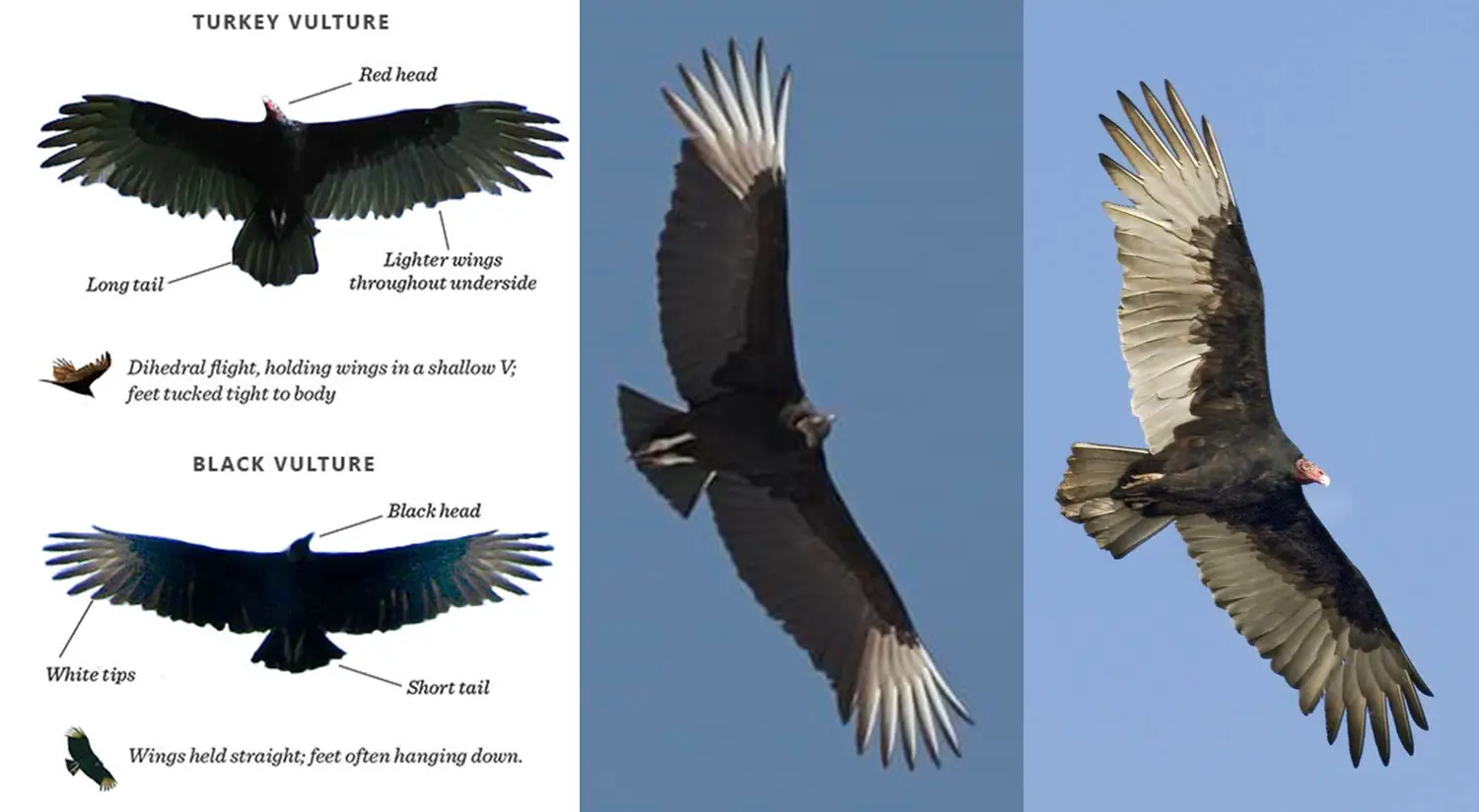Know how to properly identify black vultures and your options for mitigating their impact to your operation.
Learn more about reimbursement for livestock lost to black vultures.
Black vultures and turkey vultures both reside in Missouri. Unlike the less-aggressive turkey vulture, black vultures are known to cause problems for livestock producers. Learn how to properly identify a vulture below.
Permits are free, easy to obtain, and good for up to 10 takes. Most can be completed electronically for a quick turnaround. Contact Missouri Farm Bureau to begin the process.
Anyone who completed an application in 2025 will need to submit a new application in 2026.
Black vultures are federally protected and cannot be taken without a permit.
Apply to the Livestock Indemnity Program through your local USDA Farm Service Agency office for the cost of the animal. Payment rates vary by species and age of the animal.
The Missouri Department of Agriculture has a black vulture necropsy reimbursement process in place to help producers who have lost livestock due to black vultures.
The Missouri Department of Conservation (MDC) is partnering with the U.S. Department of Agriculture (USDA) on a multi-year study to better mediate conflicts with black vultures. The purpose of the study is to better understand black vulture movements, human-black vulture conflict, and to test vulture management tools. Landowners, cattle ranchers, bird watchers, and others may contribute to the study by reporting sightings of black vultures, or takes of black vultures, with cattle ear tags on their right wings.
In an effort to track black vultures and test management tools, 89 black vultures near the Missouri-Arkansas border were captured in the spring of 2024 and equipped with a white cattle ear tag on their right wing. Each tag has a letter and number (i.e., A47 or C20). The tags may be visible from below while the birds are flying, or while birds are perched. Twenty-eight vultures were also equipped with radio transmitters to study migration patterns and use of airspace, such as how far they travel, how high they fly, or how many roosts they use per season.
All sightings, or takes, of tagged birds should be emailed to USDA Wildlife Biologist Eric A. Tillman at Eric.A.Tillman@usda.gov or reported to the United States Geological Survey’s Bird Banding Lab online at reportband.gov.
agriculture.mo.gov
Missouri Farm Bureau Black Vulture Depredation Sub-Permit Program
Application and Approval Process
1. Missouri Farm Bureau has received a statewide depredation permit that allows for a limited number of black vulture “takes” where black vultures are depredating on livestock. Livestock producers who are experiencing depredation may apply for a Livestock Protection depredation sub-permit that if approved will allow producers to protect livestock against black vulture attacks. This program only allows for takes of black vultures. No other protected migratory bird species is authorized to be taken under this program.
2. The Missouri Farm Bureau Marketing and Commodity Department will manage the statewide depredation sub-permit program. All applications and reports will be made direct to the Marketing and Commodities Department.
3. Interested livestock producers may request a sub-permit application by emailing blackvulture@mofb.org or calling the Marketing and Commodities Department at 573-893-1417 and requesting an application. Applications must be fully completed, signed and dated by the livestock producer and returned for consideration by the Marketing and Commodities Department. Because of the limited number of “takes” Missouri Farm Bureau is issued, all applications will be scored based on past livestock losses, number of livestock on the applicant’s farming operation, number of black vultures roosts and birds in the immediate vicinity and the county ranking of livestock with Missouri. A maximum of 10 “takes” may be issued to an approved applicant, and will be determined by the application score.
4. ALL applications must be signed and dated with the applicant agreeing to the terms and conditions of the original statewide depredation permit.
5. Under their sub-permit ALL approved applicants are required to report the date, county, number of birds killed and final disposition (effigy, buried, etc.)as birds are taken. Applicants are not allowed to kill any birds in excess of the number approved in the sub-permit, or of any other migratory bird species. Livestock producers may apply to amend their original sub-permit to include additional “takings”, but must first receive official approval before taking additional black vultures. The sub-permit contains an area at the bottom of the page to record approved “takings” of black vultures.
6. Any livestock producer experiencing severe depredation from black vultures is encouraged to apply for an individual migratory bird depredation permit from U.S. Fish and Wildlife Service (USFWS) and/or work with USDA APHIS Wildlife Services (WS) to address their specific situation. Producers cannot be issued a depredation permit by USFWS and apply for and be approved for the Missouri Farm Bureau depredation sub-permit. The Missouri Farm Bureau Marketing and Commodity Department will assist livestock producers experiencing severe depredation in applying, and receiving approval for a USFWS
migratory bird depredation permit.
7. The Migratory Bird Depredation Permit is a Federal permit, and all livestock producers applying for and receiving approval of a Missouri Farm Bureau Livestock Protection Depredation Sub-Permit will be required to follow ALL USFWS Migratory Bird Depredation Permit rules and regulations. Failure to do so could result in Federal citations and fines.

